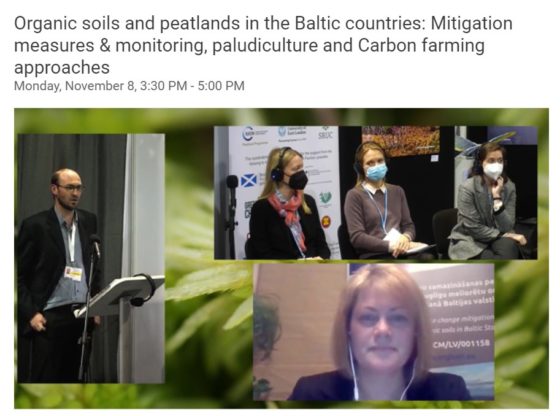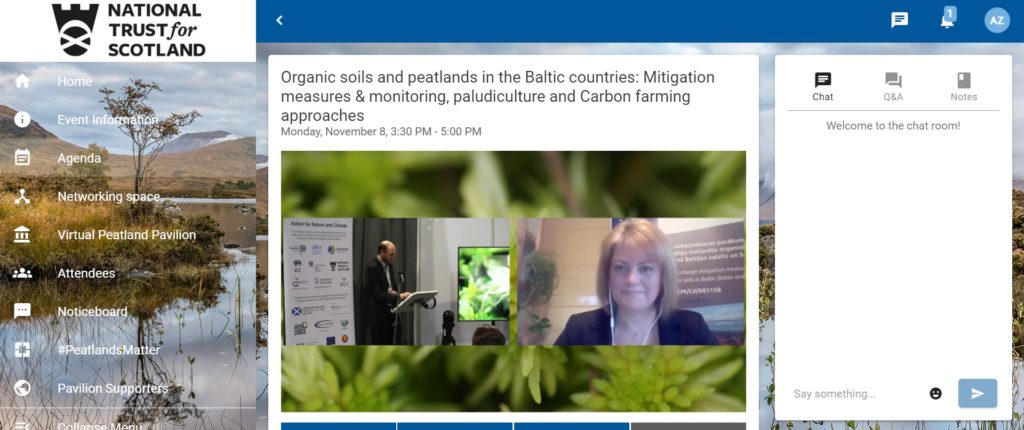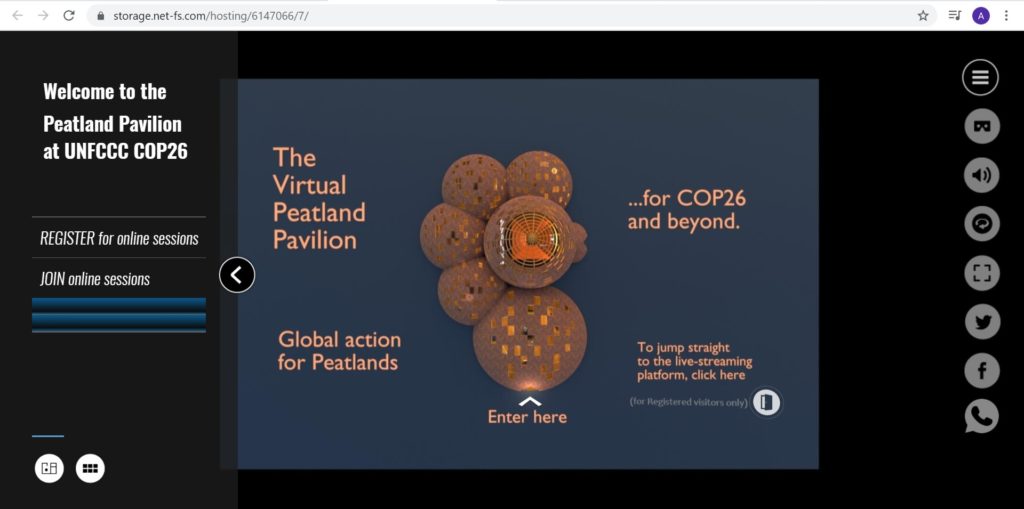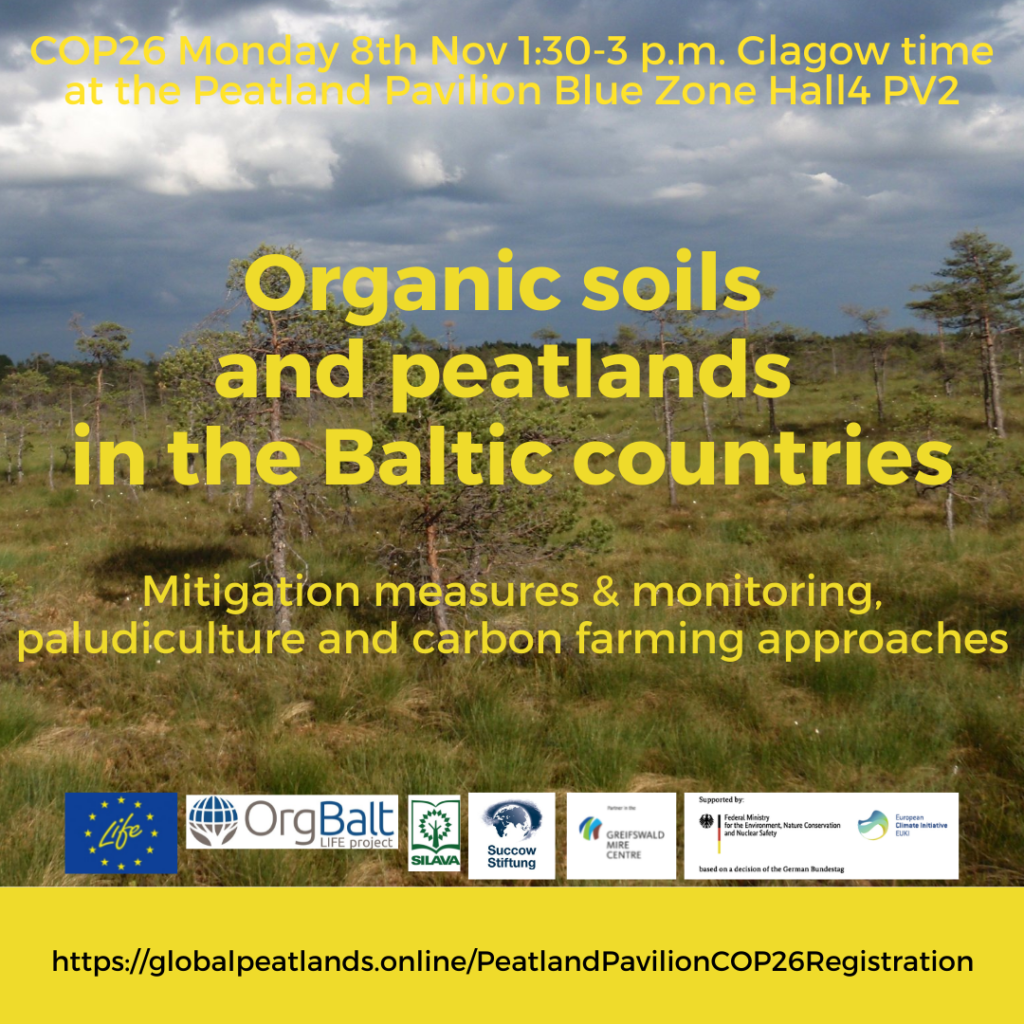On November 8, 2021, LIFE OrgBalt partners – Michael Succow Foundation and Latvian State Forest Research Institute Silava – organized the side event at the UN Climate Change Conference COP26 Peatland Pavilion “Organic soils and peatlands in the Baltic countries: Mitigation measures & monitoring, paludiculture and Carbon farming approaches”.
The side event was widely attended by COP negotiators, policy makers and scientists both at the Peatland Pavilion in Glasgow and online at the Virtual Peatland Pavilion. The event allowed delegates from the Baltic States to describe their views on the importance of measures for mitigation and current and future policy approaches for organic soil and peatland management. Peatland status and climate change mitigation measures in the Baltic countries were highlighted by Elina Baltroka, Ministry of Environmental protection and regional development of Latvia, Kristi Klaas, Estonian Ministry of Environment and Kristina Simonaityte, Lithuanian Ministry of Agriculture.
Ieva Līcīte, Manager of the LIFE OrgBalt project, introduced with the project and its preliminary results highlighting:
- GHG emission measurement process in organic soils to elaborate regional emission factors for nutrient rich organic soils thus improving national GHG inventories;
- Implemented climate change mitigation measures to reduce GHG emissions from organic soils;
- Tools being elaborated for analysis and projections of climate change mitigation impacts.
Please find the LIFE OrgBalt presentation: HERE.
Jan Peters, CEO Michael Succow Foundation, introduced with results from EUKI project “Paludiculture in the Baltic Countries – Climate Protection by Productive Use of Rewetted Peatlands”. Paludiculture perspectives and Carbon farming approaches in the Baltics were presented.
The event was closed with an expert discussion on peatlands role in climate change mitigation.








